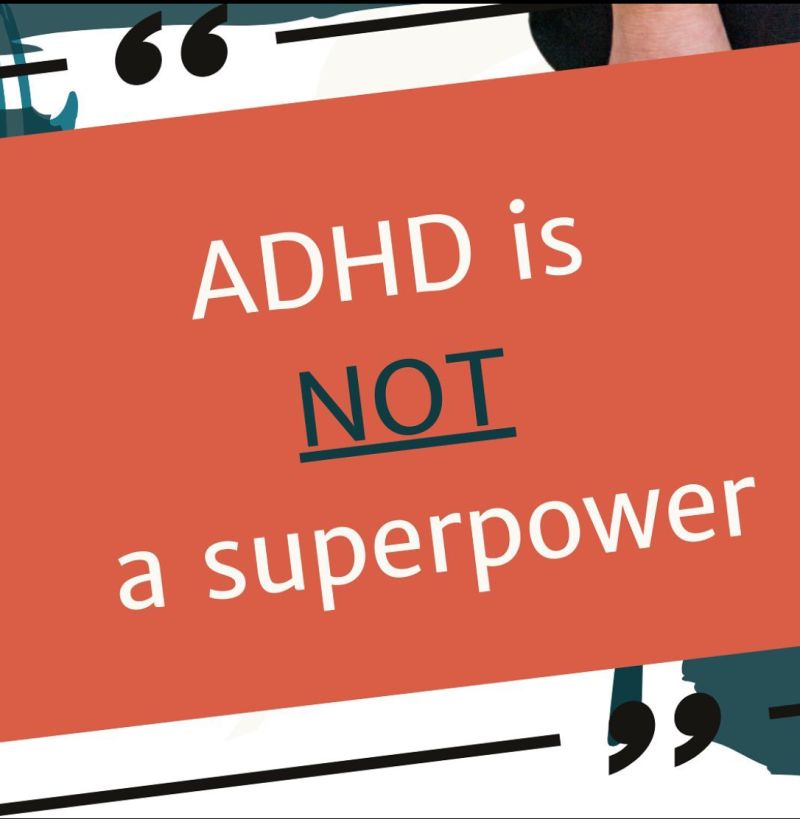While I feel a bit meh about the women’s world rugby union championship, which barring a near miracle super professional England will win by defeating the crowdfunded, plucky part-timers of Canada at Twickenham tomorrow, I am at least aware of one of the players. That player is Ellie Kildunne, the mop-headed England full back, who is fast becoming one of the first superstars of women’s rugby union. In these uncertain times, we need all the heroes and indeed role models we can get and, from what I can gather, Kildunne certainly fits the bill when it comes to those things. But then she goes and spoils it all by saying stupid like the ADHD she has is “a superpower”.
To be fair to Kildunne, she’s not the first person to have claimed her ADHD, which is a neurological condition, is a superpower. It’s one of those expressions that people wheel out from time to time for reasons I don’t quite understand. Kildunne says: ‘I’ve got the ability to focus on many things at once, but also hyper focus on the things that matter. And that’s definitely what has made me the player and person I am.” Well, that’s partly true and I suppose I should commend her for that positive attitude, but for me, and for many other people I know, ADHD has been life-wrecking.
To quote from the Google AI feature, the ADHD I have been diagnosed with, far too late in life to do anything about it, has been nothing but bad. This is what it says:
Inattention and Lack of Focus: Difficulty maintaining focus on tasks, especially those that are not of immediate interest, can impact productivity and learning. Poor Time Management: Underestimating how long tasks take and struggling to organise and prioritize can lead to procrastination and lateness. Impulsivity: The tendency to act without fully considering the consequences can lead to impulsive decision-making. Emotional Dysregulation: Experiencing emotions intensely or having difficulty managing them can be challenging. Executive Dysfunction: This broad term includes weaknesses in areas like working memory, organisation, planning, and self-monitoring. Restlessness: The combination of boredom and a fast-paced mind can result in a constant need for stimulation and activity.
Someone please tell me how something as debilitating as that described above can be regarded as a “superpower”? I have never been able to take in detailed instructions, and often relatively simple ones are well beyond my ability to understand. To this day, I have to write down in advance every single thing I have to do because if I don’t I will forget it. I cannot properly organise any part of my life. In short, I could not organise a piss-up in a brewery. To put it in the most blunt terms possible, along with my clinical depression, ADHD has massively inhibited by ability to do almost anything that could have seen me enjoy a better scholastic and professional life.
Perhaps, the people who suffer from ADHD – because I would definitely call it suffering – and call it a ‘superpower’ only have the condition in a mild form. Or maybe have found one thing they are particularly brilliant at which they, quite possibly falsely in my view, attribute to a neurological condition.
There is another way of looking at the ‘superpower’ analogy, a message especially to young people that your life needn’t necessarily be ruined following an ADHD diagnosis. The “you can do anything” I have said to my own children. In which case, why not say so?
None of this is a dig at Kildunne, who is on the brink of a great sporting achievement, and deserves all the praise that will come her way. But when it comes to the head, whether a neurological condition like ADHD or an illness like depression, people talk about it in a way they would never talk about physical conditions. No one says: my cancer or my Parkinson’s is my superpower – and quite right, too.
I happen to think words, and how we use them, matter. And reducing conditions and illnesses of the brain to throwaway remarks helps no one. My view is that one can achieve great things in life despite rather than because of their conditions. More often than not, potential is held back and the superpower suggestion comes out as mere gobbledegook.
Perhaps, I’m just jealous, but I don’t think so. For much of my life, it has felt like I have walked around in lead boots. And the idea that ADHD is a superpower isn’t just nonsense, it’s downright dangerous.

